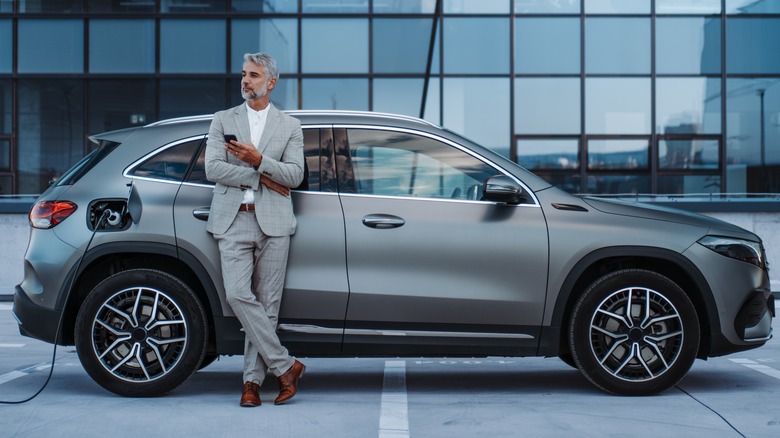This New EV Incentive Change Could Fix Our Biggest Issue With Buying Electric Cars
Starting next year, EV buyers will feel a smaller hit on their wallets towards their car green purchase, both new and old. As part of an updated provision under the Inflation Reduction Act, the Biden administration will allow instant EV tax credit transfer. That means when you land at the dealer's outlet, they will slash the eligible credit value off of the car's sticker price. So far, buyers had to wait for months to see that benefit reflected on their annual tax filings. The new rules come into effect starting January 1, 2024. Depending on the EV you are eyeing, your final bill amount will be lighter by up to $7,500 on the spot.
That's a huge convenience, irrespective of whether you are paying the full amount in one go, or strike an installment arrangement. There's even research backing the benefits of an instant financial benefit targeted at EVs. According to the US Department of the Treasury, the idea is to "effectively lower the vehicle's purchase price by providing consumers with an upfront down payment on their clean vehicle at the point of sale." The benefits extend to dealers, as well. Once the dealer has provided electronic data showing that they lowered the car's price – or provided cash — equivalent to the full amount of the credit, advanced payment will be submitted to the dealer's account within three days.
Buyers have been asking for it all along
There have been multiple studies over the years establishing the role of EV tax credits in attracting buyers, especially from middle or low-income families buying budget cars like the Nissan Leaf or the Chevrolet Bolt. But consumers would much rather get the financial benefit on the spot instead of waiting for it to arrive in the form of tax benefits. In 2022, George Washington University conducted a study and found that "immediate incentives like direct rebates were strongly preferred" compared to time-delayed incentives such as the current federal tax incentive pipeline.
The University of California, Davis also surmises that point-of-sale rebates are significantly more effective at boosting EV sales compared to tax credits. It seems existing – and potential – owners actually prefer this format. A Cox Automotive survey found that consumers are inclined toward getting the EV credit benefit at the time of purchase, instead of getting it in the form of tax deduction months later.
Of course, the EV tax credits would still follow the existing norms covering the net price of the car, the buyer's income, and the vehicle's make itself. Half the tax credit worth $3,750 is only offered if 40% of the battery minerals are processed in the US (or a trade partner), and the remaining half is allocated if 50% or more of the battery components are assembled on US soil. It would also depend on the car's category and its sticker price, which shouldn't exceed the $80,000 mark. If you're in the market, we also happen to have a handy list of every car that qualifies for the U.S. EV tax credit.

